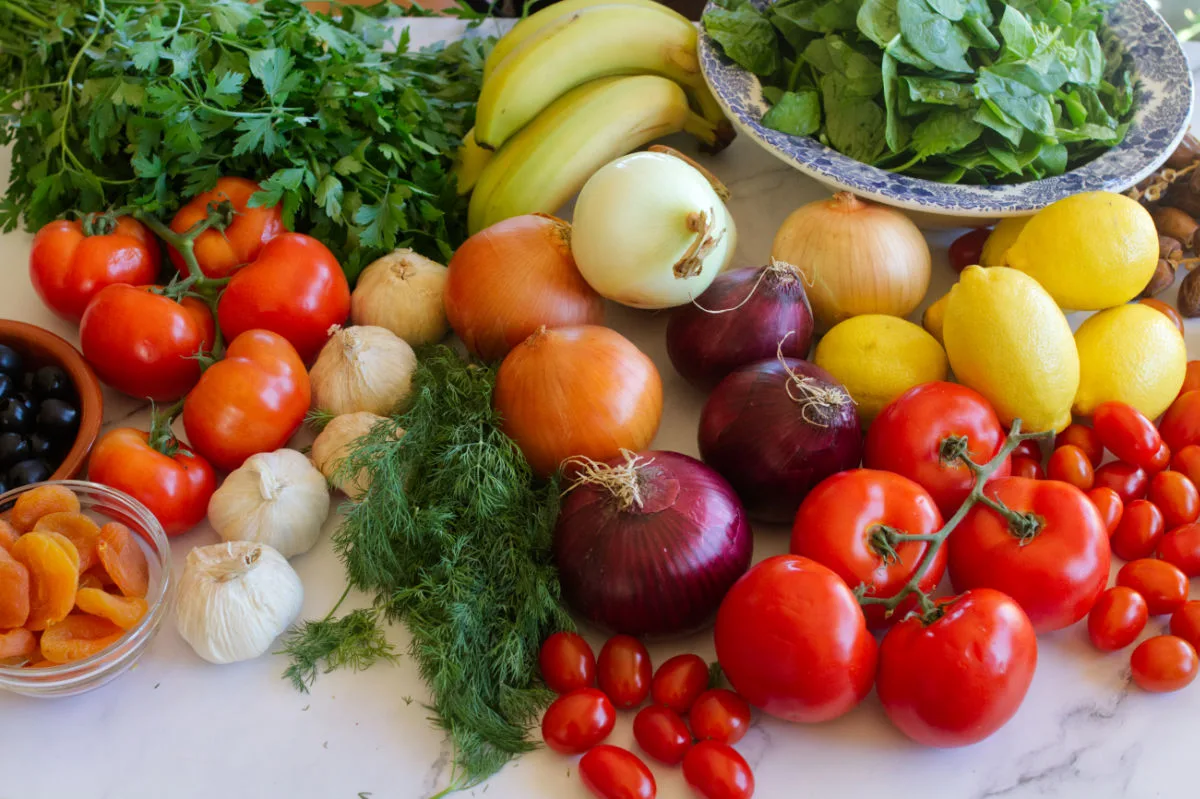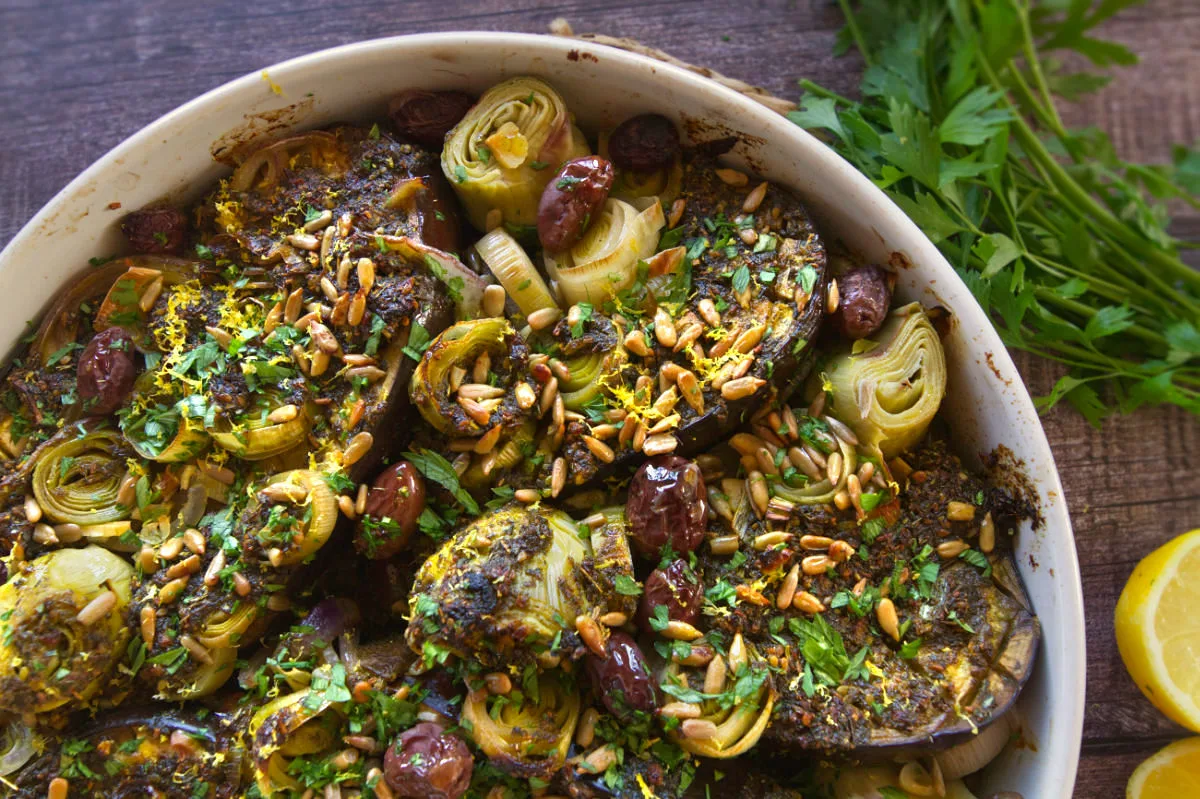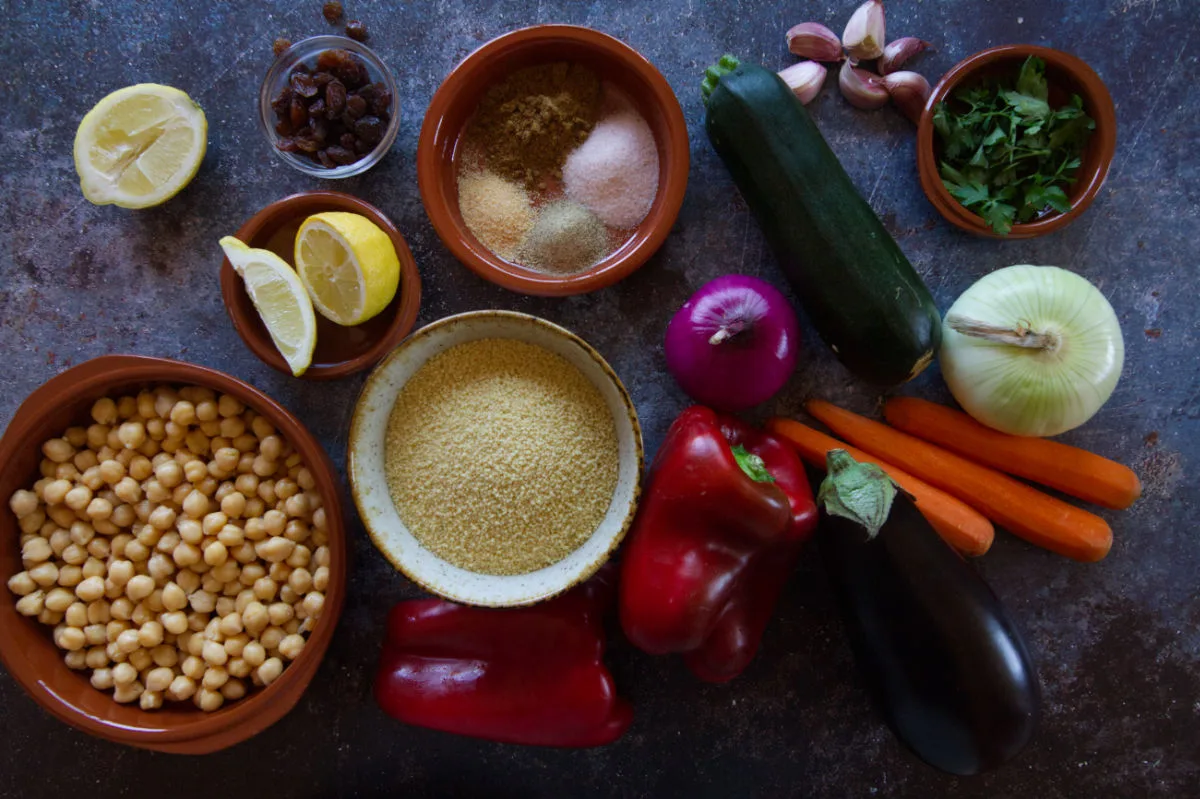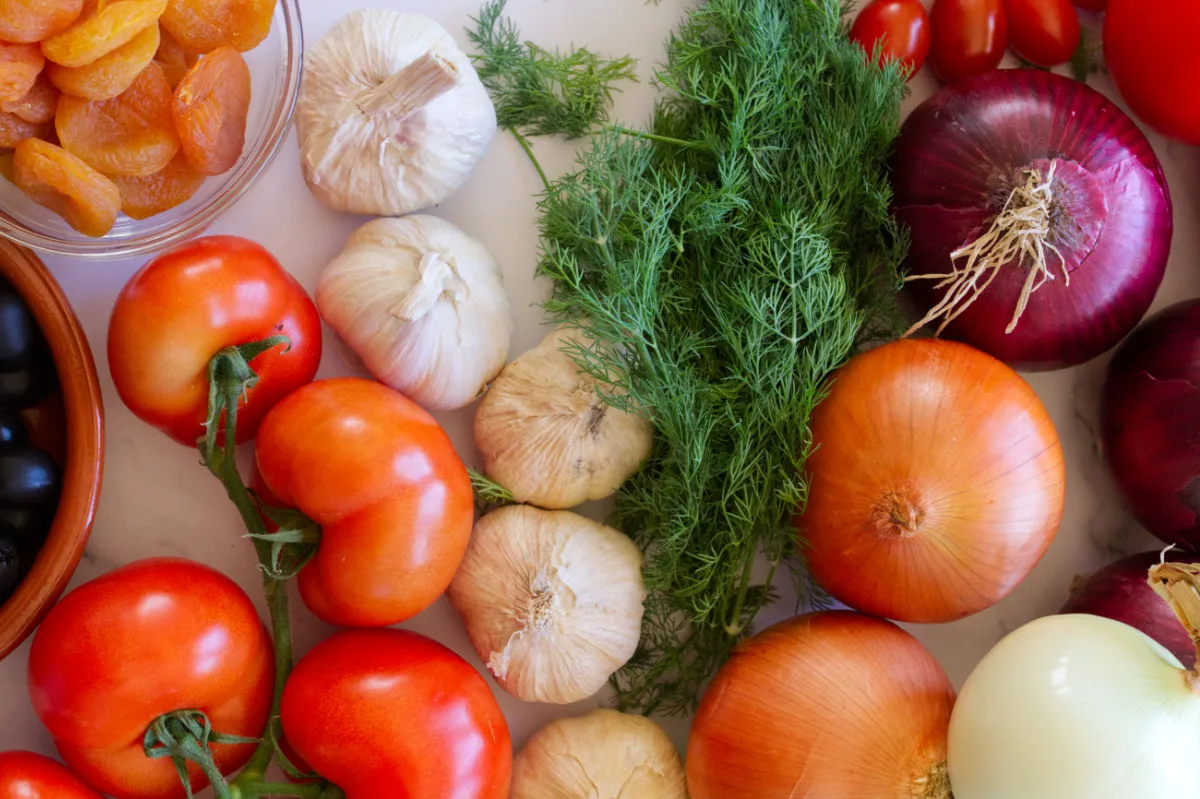Dreaming of shedding that extra weight while still enjoying delicious meals? Want to enjoy a balanced and nutritious diet without heavily processed foods? With the Mediterranean diet it is not only possible, but it is also far easier than you think! Why? Because the Mediterranean Diet is not just a diet but a lifestyle rooted in the traditions of countries bordering the Mediterranean Sea.
The Mediterranean diet offers a balanced approach to weight management, and in this article, we’ll explore how this way of eating can help you shed those extra pounds. We’ll also give you some actionable steps to kickstart your journey towards a healthier, slimmer you.
The Mediterranean Diet isn’t a quick-fix approach to losing weight. Rather, it’s a lifestyle change that you should implement at your own pace.
Table of contents:
What is the Mediterranean Diet?
At its core, the Mediterranean diet is a simple and wholesome approach to eating that emphasizes whole, unprocessed foods. Picture plates filled with colorful fresh fruits, vegetables, whole grains, and lean proteins, drizzled with olive oil. That’s the diet in a nutshell.
The beauty of this “diet” lies in its versatility. It’s not about counting calories or depriving yourself; instead, it encourages you to enjoy the flavors of natural ingredients. With a focus on eating seasonally, you’ll discover a world of delicious Mediterranean recipes that make healthy eating a balanced selection of food not only fun, but also easily attainable.
Here are the basic principles of the Mediterranean diet:
1. Fresh Fruits and Vegetables: At the heart of the Mediterranean diet are fresh fruits and vegetables. These nutrient-packed foods are brimming with vitamins, minerals, and antioxidants that promote overall health and weight loss.
2. Lean Proteins: The Mediterranean diet favors lean sources of protein like fish and seafood, and poultry. These proteins are not only low in saturated fats but also rich in essential nutrients.
3. Healthy Fats: Olive oil, the liquid gold of the Mediterranean, takes center stage as a source of healthy fats. It’s packed with monounsaturated fats, which are heart-healthy and can help you feel full and satisfied. Learn more about how olive oil can help you lose weight.
4. Moderate Dairy: While dairy products are included, they’re enjoyed in moderation, with a preference for yogurt and cheese rather than milk poured over-processed breakfast cereals.
5. Whole Grains: Whole grains like brown rice and whole wheat bread are essential for providing sustained energy and fiber, keeping those hunger pangs at bay.
6. Physical Activity: The Mediterranean lifestyle isn’t just about food; it’s about embracing regular physical activity. Whether it’s a leisurely stroll along the coast or a friendly game of bocce ball, staying active is woven into daily life. If you’re starting a new regime, make sure you learn safe exercise habits.
The Mediterranean Diet and Weight Loss
One of the reasons the Mediterranean diet is highly regarded for weight management is its ability to keep you feeling full and satisfied. The secret lies in its high fiber content, which comes from an abundance of fruits, vegetables, and whole grains. By helping you stay fuller for longer, it can stop you reaching for your favorite naughty snack.
The diet also discourages eating processed and refined foods that often lead us to overeat. Instead, it encourages mindful eating by focusing on the quality and variety of foods on your plate. When you eat mindfully, you’re less likely to consume excess calories and more likely to appreciate the flavors and textures of your meals.
Text box: The Mediterranean Diet isn’t designed to help you lose a dress size overnight. Instead, it’s a thoughtful process that can lead to long-term and lasting results.
The Mediterranean Lifestyle
Apart from food, regular physical activity is a fundamental part of this way of life. People in Mediterranean countries often engage in activities like walking, cycling, and dancing, which help maintain a healthy weight.
It’s not about strenuous workouts; it’s about moving your body in a way that you enjoy, so that it can become a part of your routine, and something you look forward to.
Don’t worry, we’re going to provide practical guidance on how to start your Mediterranean weight loss journey, track your progress, and stay motivated.

Starting Your Mediterranean Weight Loss Journey
Now that you know the Mediterranean diet’s core principles, it’s time to take action. Adopting the Mediterranean diet doesn’t have to be complicated or overwhelming. Here are some practical steps to help you incorporate this lifestyle into your daily routine (don’t beat yourself up if you can’t start all of these at once, make slow adjustments if you need):
1. Stock Up on Mediterranean Staples
Fill your pantry with essentials like healthy extra virgin olive oil, whole grains, legumes, nuts, and seeds. Make sure you have plenty of fresh fruits and vegetables on hand for daily meals and snacks. Opt for lean proteins like fish and poultry.
2. Aim for Colorful Meals
Make your plate as colorful as possible by incorporating a variety of fruits and vegetables.
Experiment with different recipes and combinations to keep your meals exciting. And use a range of Mediterranean herbs and spices to jazz up even the simplest of dishes. Remember, the more colorful your plate, the more diverse the nutrients you’ll consume.
3. Prioritize Whole Grains
Swap refined grains for whole grains like brown rice, quinoa, and whole wheat pasta.
Whole grains are rich in fiber and will keep you feeling full for longer.
4. Enjoy Lean Proteins
Incorporate fish, especially fatty fish like salmon and mackerel, into your diet. Poultry and beans are also excellent sources of lean protein.
5. Favor Healthy Fats
Use extra virgin olive oil as your primary cooking oil and salad dressing. Nuts, seeds, and avocados are other sources of healthy fats to include in your diet.
6. Moderate Portions
Pay attention to portion sizes to avoid overeating. You can try using smaller plates to help control portion sizes visually.
7. Stay Hydrated
Drink plenty of water throughout the day to stay hydrated. If you’re someone who struggles to drink enough water, herbal teas and infused water can add flavor without added calories.
8. Explore Mediterranean Recipes
You can’t get bored of food on the Mediterranean diet unless you stick to the same old routine. Seek out new Mediterranean recipes that appeal to you. With 22 countries on the Mediterranean Sea, there will always be something new for you to try.
Some recipes for inspiration:
- Za’atar with roasted eggplant and artichoke hearts
- Classic Greek salad with Kalamata olives and feta cheese
- Baba ganoush (smoky eggplant dip)
- Moroccan couscous with roasted veg and tahini dressing
- Homemade creamy Greek tzatziki
- Shakshuka (a healthy vegetarian egg breakfast)
- Turkish beetroot yogurt dip with roasted vegetables
- Baked Mediterranean rice with dates, apricots, and chickpeas

Tracking Your Progress and Staying Motivated
As you embark on your Mediterranean diet journey, it’s essential to monitor your progress and stay motivated. Here are some strategies to help you achieve your weight loss goals and maintain a healthy lifestyle:
1. Keep a Food Journal
Record your daily meals, snacks, and beverages. Note your portion sizes and the quality of your food choices. A food journal can help you identify areas for improvement and what’s working.
2. Set Realistic Goals
Establish achievable short-term and long-term goals. Celebrate your successes along the way, no matter how small they may seem.
3. Stay Active
Incorporate regular physical activity into your routine. Find activities you enjoy to make exercise a sustainable part of your life.
4. Practice Mindful Eating
Slow down and savor each bite during meals. Avoid distractions, such as watching TV, while eating. Pay attention to your body’s hunger and fullness cues.
To Recap: Tips for Success
The Mediterranean diet is not a quick-fix solution, but rather a sustainable and enjoyable approach to weight management. It promotes a healthy relationship with food and encourages a balanced, active lifestyle that can lead to long-term success. Adopting the diet and its components doesn’t have to be a drastic change — it’s about making gradual, enjoyable adjustments to your eating habits and lifestyle.
Keeping track of your progress, setting realistic goals, staying active, and practicing mindful eating are key strategies to help you achieve your weight loss goals while following the Mediterranean diet.
As you set out on this journey, remember that small changes can yield significant results. Explore new recipes and foods, embrace the flavors of fresh ingredients, and enjoy the path to a healthier you. Here’s to your success and wellbeing.



Leave a Reply